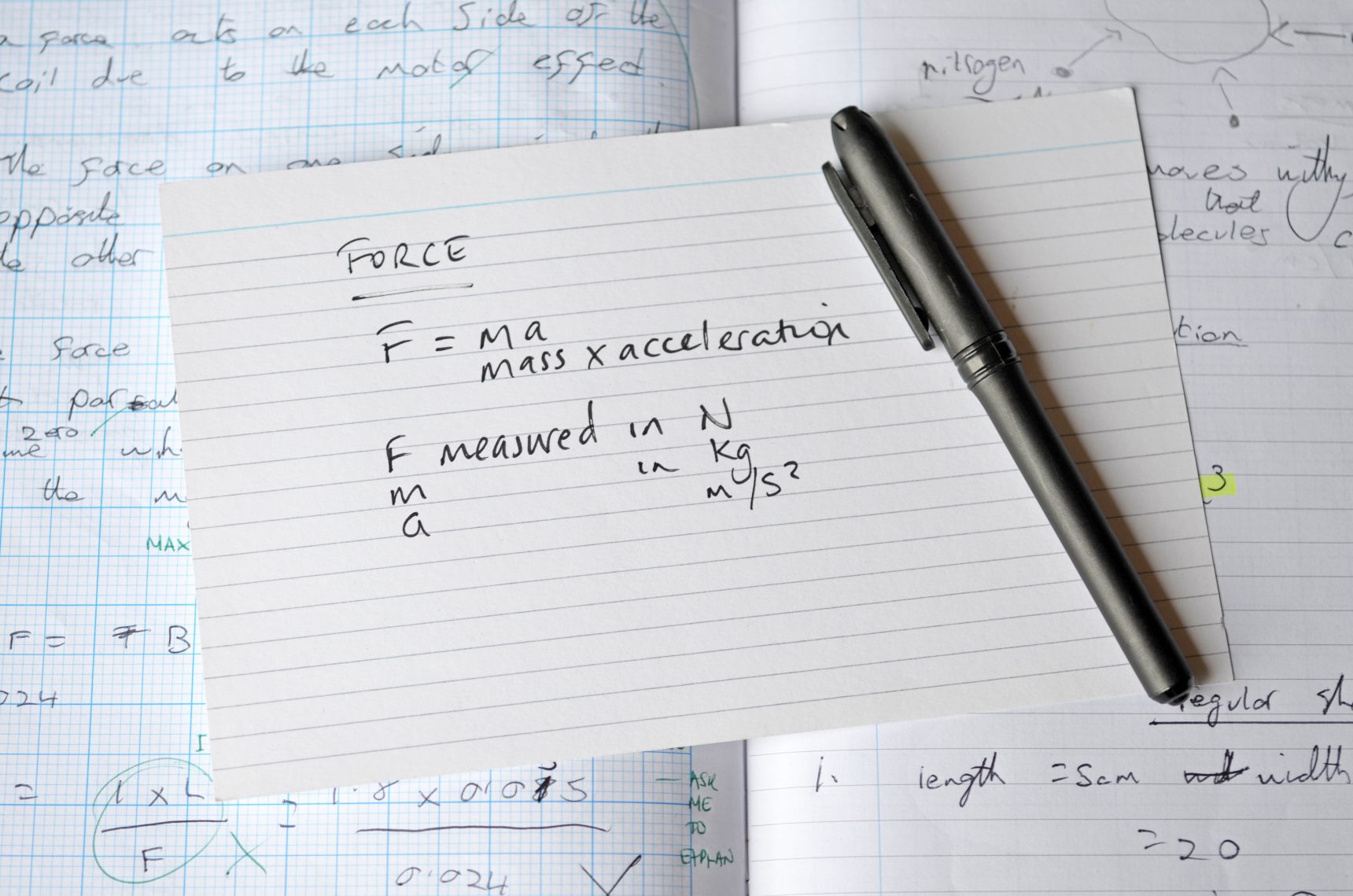Exam season is right around the corner, and for GCSE and A Level students, revision should be well underway. As a parent, supporting your child with their exam revision can feel daunting. Revision isn’t as simple as dusting off an old textbook! The landscape of available revision resources has evolved significantly and tonnes of free online resources and tools are available to streamline the revision process. It can be easy to get lost in this digital jungle of materials!
In this parent’s guide to revision resources, we’ll explore various study materials and techniques that your child can use to revise effectively.
Flashcards
Flashcards have stood the test of time as a reliable revision tool. They condense information into bite-sized pieces, making it easier for your child to absorb and recall key facts.
Encourage your child to break each of their subjects down into specific units or topics and to create a set of flashcards for each. We recommend keeping it simple, with a question on one side of the card and a concise answer on the other. However, they may prefer to include larger chunks of information in the form of bullet points. Flashcards are excellent for regular, quick, and focused revision sessions. They will enable your teen to test their knowledge, identify areas of weakness, and reinforce their understanding of key concepts. Plus, it’s a great opportunity for you to get involved with revision by testing their knowledge and providing support and encouragement!
Physically writing out flashcards aids in muscle memory. However, if your child is short on time, or isn’t keen on using pen and paper, they can create digital flashcards using programs like Quizlet or Anki. This has the added benefit of enabling your child to revise on their phone while on the move!
You can also find pre-made sets of flashcards organised by subject and topic for free on Physics & Maths Tutor. Would your child prefer physical copies? Order GCSE and A Level science and maths flashcards from the PMT Shop and get them delivered straight to your door!

Mind maps
Mind maps are a type of visual tool used to organise information around a central topic. They can help break down complex subjects and make them easier to understand. Whether your child is revising the ethical implications of GM crops or planning an essay on the treatment of Jewish people during Kristallnacht, mind maps can be very useful in connecting ideas and events. They serve as an engaging revision activity and cultivate a deeper understanding of the relationships between different aspects of a topic.
Your teen could make a set of mind maps using their textbook and class notes and stick them around their bedroom as a visual aid. Alternatively, they could use mind maps as a form of ‘retrieval practice’. In a brief but focused burst (and without peeking at their notes!), they could create a mind map displaying everything they recall about a specific topic. They could then review their mind map and fill in any gaps they may have missed with a different coloured pen. This will help them to better retain the information.
Your child could create digital mind maps for use on their smartphone, tablet, or computer, using a program such as MindMeister. They can also find colourful, pre-made digital science mind maps on Physics & Maths Tutor or purchase physical copies from the PMT Shop.

Posters
Help your child tap into their creativity with revision posters! Posters are a fantastic revision resource, especially for the sciences. Encourage your teen to design posters that showcase key points, formulae, and diagrams. Placing these posters in their study area will serve as a constant visual reminder, reinforcing memory retention.
Beware! While aesthetics are important, caution your child against spending excessive amounts of time trying to make the posters visually appealing. Emphasise that the primary goal is to capture and present the key points effectively. Spending too much time perfecting handwriting and design might detract from the core purpose of reinforcing essential information.
For those seeking ready-made revision resources, you can explore our selection of GCSE and A Level Biology posters on the PMT Shop.
YouTube
YouTube is a treasure trove of educational content! If your child requires supplementary learning materials or a fresh perspective on challenging subjects, there are lots of YouTube ‘explainer’ channels that break down complex topics into digestible content. For example, the Amoeba Sisters create humorous videos explaining key biology topics, from meiosis to the human nervous system.
Additionally, if your child is struggling with a particular exam question, they’ll likely be able to find a helpful video walkthrough on YouTube. On our YouTube channel, you can find video solutions for various GCSE and A Level maths and science past papers.

Past papers
Past exam papers often present questions in a different manner than those found in textbooks or worksheets provided by teachers. They are therefore crucial to help familiarise students with the types of questions they might encounter and give them a sense of the exam format. Practising past papers also reinforces understanding and highlights any knowledge gaps or weaknesses in exam technique.
Instead of waiting until they’ve covered all topics, your child should practise past papers regularly throughout the revision process. After revising a specific topic, they should test themselves using relevant exam questions – Physics & Maths Tutor provides exam questions conveniently organised by topic!
Ensure they check their answers using the mark schemes (or using our step-by-step video walkthroughs) and make use of examiner’s reports to gain insight into common pitfalls and areas where students often slip up. Especially in science subjects, mark schemes can be highly specific, requiring keywords or phrases for mark allocation. As your child goes through mark schemes and examiner’s reports, they’ll start getting a feel for what examiners are after, giving them a solid edge when it’s time to face the actual exam.
Educational apps
Revision apps can be useful tools to help students manage their study schedules, simplify complex concepts, and stay focused. Lucky for you, we have an in-depth student blog article that explores eight of our favourite revision apps!

Revision courses
If your child requires a more intensive and focused approach to exam preparation, we run Easter revision courses for a range of GCSE and A Level subjects and exam boards. This can be an excellent opportunity for your child to bolster their existing GCSE or A Level knowledge, strengthen their exam technique, and ask tutors any questions they might have over the Easter break.
Navigating your child’s exam revision doesn’t have to be overwhelming. From tried-and-tested revision methods like flashcards to the dynamic world of educational videos and apps, there’s a diverse array of tools available. Encourage your child to mix up their revision methods, keeping them engaged and leveraging different memory pathways for effective learning. With your support, and armed with effective revision strategies, they can approach their exams with confidence!






Comments